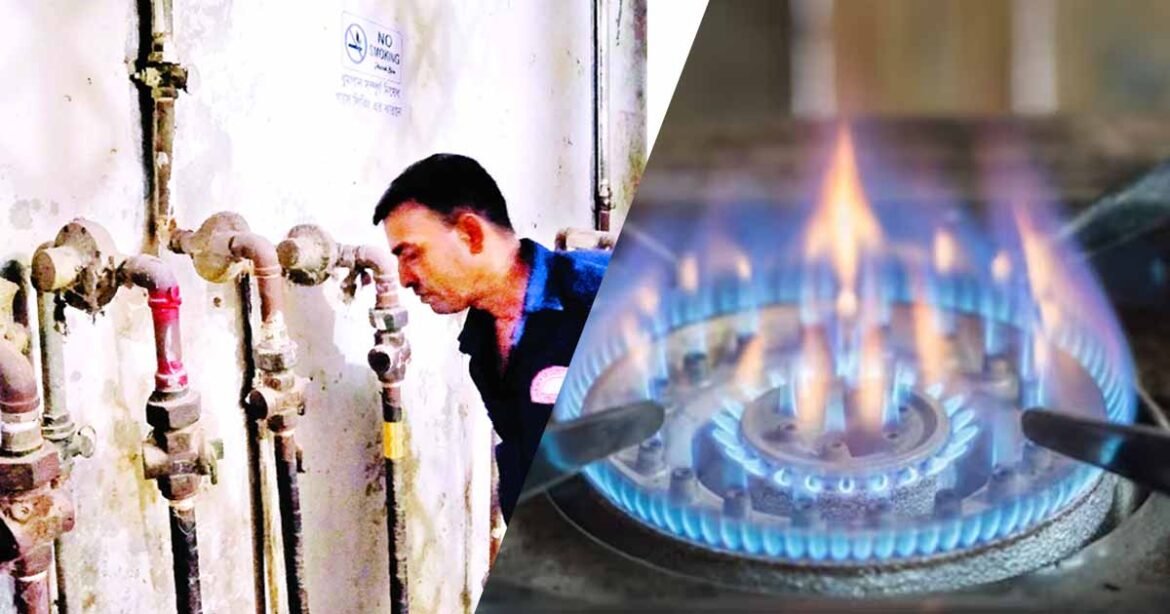Residents in different areas of Dhaka city, the capital of Bangladesh, became concerned over the smell of gas leaking from pipelines on Monday. The gas company, Titas Gas Transmission and Distribution Company, quickly advised people not to panic, stating that there was no danger in lighting stoves, and that the issue had been resolved. However, this is a constant fear that people in the country must live with, with many previous fire or blast incidents caused by accumulated gas in homes, industries, markets, and even at a mosque. With the recent frequent fire incidents happening in the capital, citizens’ first response was to panic, pointing to the need for authorities to take fire safety seriously across the board.
Increase in pressure?
According to data from the Bangladesh Oil, Gas and Mineral Resources Corporation (Petrobangla), the total gas production on 20 April was 2,842 million cubic feet (mmcf), which dropped to 2,124mmcf on Monday when people reported leakages. While Titas Gas officials initially attributed the increase in the smell of gas to increased gas pressure, it has now been revealed that mixing odorants gave rise to the situation. These chemicals are used to make gas leakage more noticeable, and while they have been used regularly by Titas Gas, it was revealed that they were not used for years before recent fires in Dhaka prompted their use as a precaution.
Titas must take responsibility for repairing and replacing leakages
While Titas Gas has been praised for adding odorant to gas at the required level, helping consumers to sense leakages at their premises, it is essential for the company to repair and replace leakages on a priority basis. With Titas Gas having around 12,706 km of distribution lines in Dhaka and Mymensingh divisions, a significant portion of which is very old, the initiative to replace such risky pipelines within three years has not been implemented, even after five years. As a draft project plan has been sent to the Energy and Mineral Resources Division of the power, energy and mineral resources ministry, Titas Gas must take action to implement it and take steps to replace all old distribution lines as soon as possible.
The need for immediate action
The recent gas leaks in Dhaka have once again highlighted the urgent need for Titas to take immediate action to fix the leaks and prevent a potential disaster. The vulnerability of the distribution network and the aged pipes being used have been identified as the main culprits of the leaks. Energy experts have warned that these leaks, if not fixed immediately, could lead to deadly explosions, as was witnessed in Narayanganj a year and a half ago. The incident, which claimed 34 lives, was a stark reminder of the dangers posed by accumulated gas. Despite the warnings, Titas has not taken the necessary steps to upgrade its distribution network, which has developed numerous leaks over the years. The lack of an automated system to control the sudden rise of gas pressure has only compounded the problem. While mixing odorant was a good initiative to alert people about the leaked gas, experts have noted that Titas is not using it regularly in its entire network. The company must take swift action to repair all the leaks in its distribution network to avert accidents. The need for a comprehensive survey to identify all the leaks and an upgrade of the network is critical to ensuring the safety of the people of Dhaka.
In conclusion, while Titas Gas has reassured citizens that there is no danger in lighting stoves, the company must take full responsibility for repairing and replacing leakages on a priority basis to prevent further incidents from occurring. It is essential for the authorities to take fire safety seriously across the board, ensuring that no gas leak or irregularity in building design is taken lightly to keep the citizens safe.


